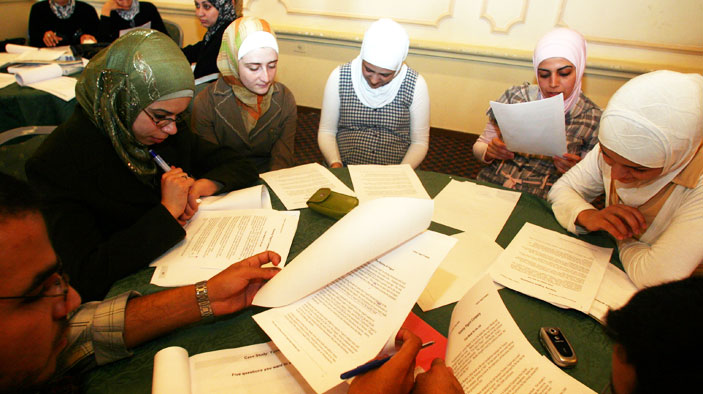Palestine—Strengthening the Accountability and Transparency of the Legislative Process (BAYAN)
Client: U.S. Agency for International Development
Duration: 2005-2008
Region: Middle East and North Africa
Country: Palestine
Solutions: Governance
The strength of democracy in Palestine depends on the ability of its citizens and their representative organizations to evaluate the performance of their elected officials, participate effectively in the legislative process, and have sufficient timely information to perform these crucial citizen responsibilities of oversight and advocacy. The BAYAN project (named after the Arabic word for exposition) worked closely with leading Palestinian civil society organizations (CSOs) to build their capacity to oversee the legislature, analyze information, and lead information and advocacy campaigns. During its 34 months, BAYAN evolved into a highly effective and well-regarded project that had the strategic vision and flexibility to respond to the ever-changing political landscape. BAYAN’s approach emphasized responding to the initiative and needs of the Palestinian civil society community and supporting practical and sustainable projects that address issues facing Palestinians now and in the future.

Sample Activities
- Establish a nonpartisan legislative development unit to provide resources and sustainable support to the broader legislative community.
- Strengthen the Palestinian Authority’s ability to research, analyze, draft, and implement effective legislation.
- Support civil society’s efforts to participate in the legislative process and hold government institutions accountable for their performance.
- Implement six grant agreements with Palestinian CSOs to help CSOs and government forge partnerships that enable CSOs to engage in the public policy process.
Select Results
- Legislative drafting training resulted in well-thought-out proposed amendments to laws, including the Child Law, Charitable Societies Law, and Judicial Authority Law.
- Drafted a regulatory impact assessment manual in Arabic, distributed to 15 organizations and 40 individuals in the legislative community.
- Trained 400 citizens—youth, women, members of community-based organizations, representatives of key CSOs, and newly elected members of local government councils—on advocacy, oversight, information dissemination, budget analysis, and the role of Parliament and government.
RELATED CONTENT:
Türkiye—Technical Assistance for Capacity Building for Effective Nationality Determination
This project improved Türkiye’s legal and administrative framework in migration management by establishing a well-functioning migration management system in line with European Union standards.
Read More